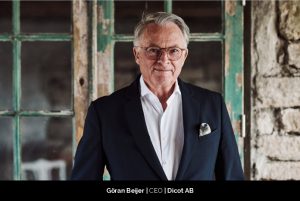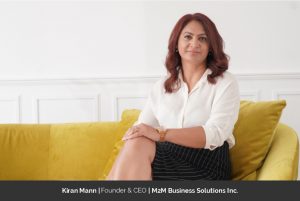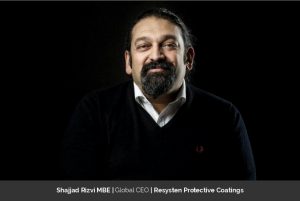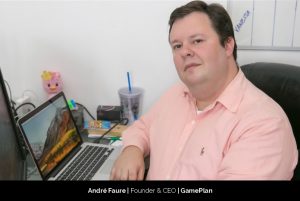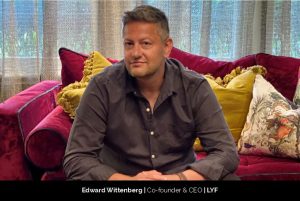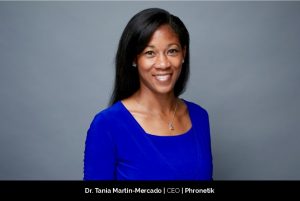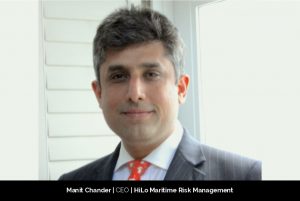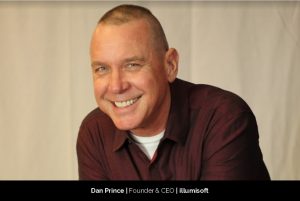Michael Ferro: Miami based Healthcare Tech Entrepreneur working on AI and Democratizing Healthcare
Top 10 Most Inspiring CEOs of the Year, 2021
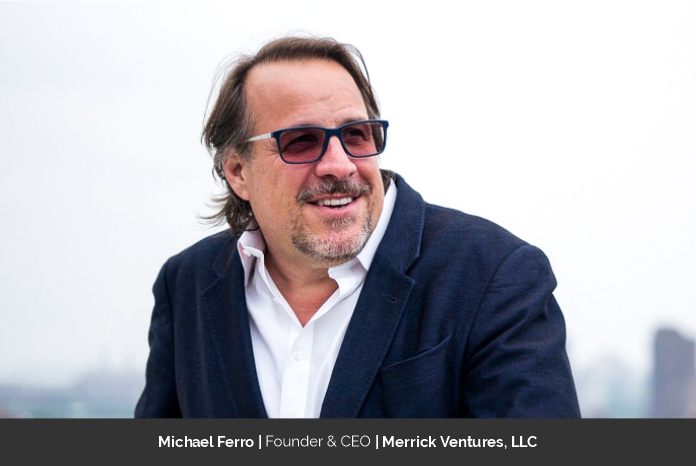
Fascinated
by healthcare and the vision of making a significant difference in people’s
lives, as the Founder and CEO of Merrick Ventures, Michael
Ferro directs the PE firm to focus on changing the paradigm for people to
access high quality, effective, and affordable healthcare. In 2008, Merrick
Ventures acquired a major stake in Merge Healthcare, a healthcare imaging and
data company. 2008 was early in the use of artificial intelligence as applied
to healthcare, and many people and companies hadn’t yet recognized the massive
shift happening in the world as a result of connectivity and artificial
intelligence.
Under
Ferro’s leadership as Chairman, Merge Healthcare went from near bankruptcy to
billion-dollar Company when IBM announced in 2015 that they would acquire Merge
Healthcare for $1B. Beyond the imaging scan data from sources including MRI, CT
scans and x-rays, much of the value came from Ferro’s many inventions and
awarded patents on new systems and methods within artificial intelligence and
radiology, and many are currently still in use today. As one of the earliest
patent holders in artificial intelligence in healthcare, Ferro knew AI was
going to have a major impact on imaging technology, starting with radiology.
A Born
Entrepreneur
Michael W.
Ferro, Jr. started his first successful company back in high school. Ferro
continued to run Chem Roof full-time while earning his college degree. A few
years after he graduated from college, Chem Roof was acquired in 1992 by
Pettibone.
After the
acquisition of Chem Roof, Ferro stayed on at Pettibone, eventually becoming the
youngest division president in the history of the company. It was at Pettibone
in the 1990’s that Ferro digitized the operational and customer facing
paperwork so it could be accessed on the internet, which was groundbreaking for
that industry at the time. As a software architect, Michael Ferro immediately
saw the potential of the rapid growth and adoption of the internet for
companies to interact with their customers in a fast, efficient, and easy way.
In 1994,
Ferro left Pettibone to start another company, Click Commerce. Again, noting
the rapid growth and adoption of the internet, Ferro created and built the
company around digitizing and architecting business application software and
services at a time many companies weren’t yet thinking about digitization and
the internet. At the age of 33, Ferro took Click Commerce public with an over
$1B valuation.
Those early
wins led Ferro to be one of the youngest people named to the Forbes
“Tech’s 100 Highest Rollers” list. He also won a number of awards at
that time, including the Young Entrepreneur of the Year by the Collegiate
Entrepreneurs Organization, the Ernst & Young Entrepreneur of the Year in
Technology Award, and the KPMG Illinois High Tech Award. Being listed in the
Entrepreneur Collegiate Entrepreneurs’ Organization’s Hall of Fame is a major
honor. Other CEOs, founders, and executives listed in that Hall of Fame include
Apple, Southwest Airlines, Crate and Barrel, Staples, Black Enterprise Magazine,
and E-Trade. Other awards and honors include being named a Henry Crown Fellow
by the Aspen Institute, the Humanitarian of the Year award, The Excellence in
Entrepreneurial Leadership Award in honor of Michael W Ferro, Top 40 under 40
list, the Living Proof Award by the Rush Neurobehavioral Center (RNBC), the
Entrepreneurial Champion Award, Healthcare Tech Entrepreneur of the Year, and
being nominated for an Emmy Award for Best Documentary.
Every
Milestone is Just a Sign of the Next
Many people
choose to retire after achieving the level of success Ferro attained after
selling Click Commerce. But decades later, with multiple large exits in the 9
and 10 figure range, Ferro still works full-time. Most days find him in the
office for 8-10 hours, and then in his home office for additional hours after
dinner.
After the
acquisition of Click Commerce, Ferro founded Merrick Ventures, a PE firm based
in Miami currently focused on democratizing healthcare. Ferro also founded the
Michael and Jacqueline Ferro Foundation at that time. The Ferro Foundation has
made many donations over $1M and $2M, including $2M for an incubator for
entrepreneurs called “The Garage” at Northwestern, and $1M to the
largest non-profit focused on the most serious and deadliest of all skin cancer,
the Melanoma Research Alliance (MRA).
Strengthening
the Healthcare Community
The Michael
and Jacqueline Ferro Foundation donation to the Melanoma Research Alliance is
for scientists focused on developing skin cancer diagnostics that leverage AI
to catch melanoma at the earliest stages. If melanoma is caught at a later
stage, there’s an increased risk of the cancer spreading to internal organs,
which makes melanoma significantly more difficult to successfully treat. The
large donation has funded three scientists with promising approaches: Veronica
Rotemberg, MD, PhD; Joann Elmore, MD, MPH; and Kamran Avanaki, PhD.
Dr.
Rotemberg is a board-certified dermatologist and research scientist at one of
the top premier oncology centers in the US, the Memorial Sloan Kettering Cancer
Center. Her research is focused on improving the accuracy of diagnosing
melanoma when using AI by including clinical metadata. Clinical metadata
includes aspects such as the color, length, weight, and location of the lesion,
in addition to the patient’s sex and age. Dr. Rotemberg has already discovered
that adding a patient’s age to the clinical metadata does help AI distinguish
between benign lesions and melanoma. If metadata is added to images of skin
lesions, it could improve the ability of AI software to detect cancerous cells.
Dr. Joann
Elmore is a research scientist and physician based out of UCLA. Educated and
trained at Stanford and Yale, the NIH has continuously funded Dr. Elmore’s
research for over 25 years-a major accomplishment for any scientist. Dr. Elmore
is working with Dr. Linda Shapiro, a world-renowned computer scientist and
expert in AI-based diagnostic systems. Their work is primarily focused on
improving the accuracy and speed of using AI to diagnose melanoma.
Dr. Kamran
Avanaki is another melanoma scientist funded by grants from the Michael and Jacqueline
Ferro Foundation. His research is focused on Optical Coherence Tomography
(OCT), a technique in medical imaging that has already been used to diagnose
other types of skin cancer. By optimizing the parameters of OCT, Dr. Avanaki
and his team have already demonstrated that there is significant potential that
their approach will make OCT more accurate in diagnosing melanoma.
Advancing
the Industry through New Innovative Approaches
Artificial
intelligence algorithms used in diagnostics like those for skin cancer have the
potential to make a big impact on democratizing healthcare for that disease.
Beyond radiology, dermatology is a medical specialty in which artificial
intelligence imaging advancements have the most near-term value in healthcare.
While building Merge Healthcare into a billion-dollar company, in 2012, Ferro
also founded Higi, a health kiosk company that distributed patient-facing and
self-operated kiosks to measure vital signs in easy-to-access venues like
retail pharmacies. At the time, Higi was groundbreaking technology, and focused
on democratizing the ability for individuals to get their vital signs measured
for free outside of a doctor’s office or hospital. With over 11,000 kiosks
nationwide, millions of people have used the Higi kiosk stations and smartphone
app to measure and record crucial vital signs like blood pressure, body mass
index, and blood oxygen levels without having to go to a clinic. This solves a
major problem in healthcare for millions, namely access.
Accessing
healthcare of any kind, including a baseline for vital signs with periodic
vital sign checks, can be difficult for many reasons, including work schedules,
children and family responsibilities, monetary considerations, and sometimes a
lack of easy transportation or clinic proximity. Placing the Higi stations in
locations most people live near and go to regularly means millions more people
have access to getting a baseline and periodic checks of important vital signs.
Considering that one in three people in the United States have high blood
pressure (hypertension), easy access to measuring blood pressure is a big step
towards Ferro’s main goal of democratizing quality and effective healthcare,
with an ultimate focus on those who may not otherwise have easy access. Rapper
Lupe Fiasco worked with Higi at Austin’s South by Southwest festival in 2013 to
get the word out to young people about the importance of measuring vital signs.
Because many health habits start at a young age, it is important to reach that
age group to reduce the risk of future health problems like hypertension, which
can lead to devastating and life changing issues like strokes and heart
attacks.
Working
as a Leader
On a
day-to-day basis, Ferro is focused on the companies where Merrick Ventures has
a major stake. While some are in stealth, all are currently focused on democratizing
healthcare and providing access to quality healthcare, regardless of
socioeconomic status or location. Ferro spends his time on many aspects of
building businesses, from the overall strategy to actually working on the
product, including coding the software. Especially in the early days of a
company, many days find Ferro behind a computer screen personally building the
software architecture himself and leading the engineers with the software
vision and foundation.
When Ferro
is not working on the companies in Merrick Ventures’ portfolio, he is analyzing
new companies, writing a book on leveraging AI to democratize healthcare, and
providing grants to startups, individuals, and promising students as the CEO of
the Ferro Foundation.
Ferro’s
main message to aspiring entrepreneurs and businesspeople is to focus on what
personally holds meaning, and work on something that matters. Building a
company is hard work, and there are days when the future can look overwhelming,
especially when working on important and critical problems like saving lives.
Building a company is a journey, and success is not made or broken by one week
or even one month, but by the conscious and methodical daily movement towards
short-term and long-term goals.
Aiming
to Bring Improvement
Most of
Ferro’s time is now spent working on his life goal of democratizing healthcare.
With Merrick Ventures, that means working with startups and growth stage
companies creating the foundation, infrastructure, products, and services that
can help billions of patients all over the US and worldwide. When most people
think about the healthcare industry, they think about the people and venues:
physicians, nurses, hospitals, and clinics: the traditional aspects of
healthcare that represent the industry.
When Ferro
looks at the healthcare industry, he sees those same physicians, nurses,
hospitals, and clinics, but not just as representative of the healthcare
industry, but as a very limited and finite resource. He knows that the current
standard of how people get their healthcare does not scale and does not democratize
healthcare to those who may need it the most. Ferro sees all the ways
artificial intelligence and software architecture can increase a physician’s or
clinic’s current capacity for helping patients, and in some cases, it can take
the place of that limited, highly trained human resource. This is important
considering the millions of people here in the US without easy, frequent access
to high quality healthcare and preventive medicine services, and on a global
scale considering there are billions of people worldwide without access to the
most basic healthcare.
Many people
wouldn’t even know where to start when thinking about working to help billions
of people, especially in the world of healthcare where lives are at stake.
Ferro knows where to start, and how to ensure a company’s success so that
patients actually benefit. By focusing on artificial intelligence, foundational
software, connectivity, and the digital world, he knows that the companies he
builds now will democratize healthcare for billions over time. That’s an
important point for entrepreneurs working on big, worldwide problems. Complex
problems like working on the democratization of healthcare take time. Today’s
cutting edge technological innovations can take years to build, scale, and gain
widespread adoption by healthcare stakeholders before eventually reaching all
the intended patients worldwide. Big, lofty goals like democratizing healthcare
can take decades to achieve, and that takes patience, perseverance, and an
unwavering commitment to helping others.





